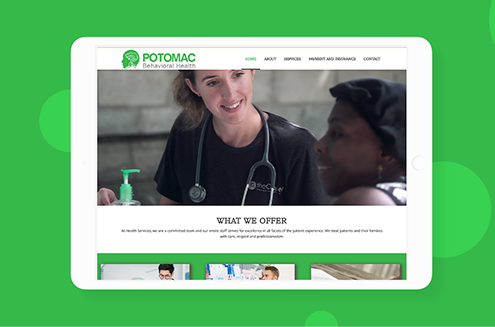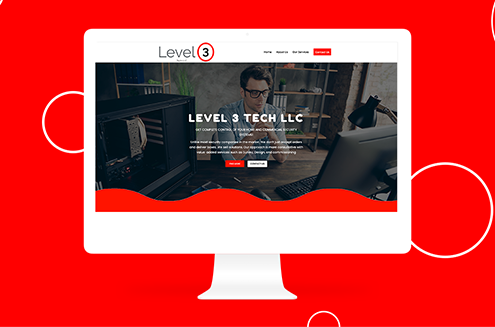 https://xoopah.com/wp-content/uploads/2021/03/health-thumb.png
327
626
blogMaster
/wp-content/uploads/2020/06/xoopah.png
blogMaster2021-03-11 12:05:172023-01-18 07:49:04Some key features of a good healthcare website design
https://xoopah.com/wp-content/uploads/2021/03/health-thumb.png
327
626
blogMaster
/wp-content/uploads/2020/06/xoopah.png
blogMaster2021-03-11 12:05:172023-01-18 07:49:04Some key features of a good healthcare website designWhat exactly is CRM System?
Customer Relationship Management (CRM) refers to all of the tools and techniques used to improve customer relationships. In a nutshell, CRM systems allow businesses to acquire more customers and develop long-term relationships with them.
CRM system essentially functions as a data repository, storing all contact information, interactions, and preferences.
Having only the customer’s name and email address is insufficient for providing a good customer experience. You can simply track details such as name, phone number, email, address, website, and date of purchase/contact using an old Excel spreadsheet system.
However, when using a CRM system, you can store and track additional information such as:
- Size of the company
- Size of the company
- Various contacts from the same company
- Previous interactions on social media
- The sales pipeline
- Pending actions and deadlines
- Reports that are insightful and much more

How Does a CRM system Work?
After defining what a CRM system is, let’s look at how it works.
All customer interactions across multiple platforms are logged against the contact records to ensure that no important details are overlooked.
Leads generated from various sources are captured and saved in the CRM system.
The Customer Relationship Management software then collects pertinent information about these leads from social media, website channels, email, and search engines. It takes in a lot of information and divides it into sections to make it easier to understand.
Overall, a CRM system aims to save a company’s time and resources as efficiently as possible by making it easier to view and manage customer data. CRM will direct the sales team to high-quality leads because the technology is designed to provide a profitable solution.
What to Consider When Choosing CRM Software
When looking for the best CRM software, you will come across numerous options with varying features. So, how do you choose one of these?
The answer is simple: choose a CRM that integrates with your existing business operations and allows it to grow over time.
The CRM you select should be simple to use. It should provide useful features at a reasonable cost. When looking at CRM options, there are a few other things to think about, such as:
- Pricing options vary
- Capability to store data
- Scalability and automation extent
- Previous interactions on social media
- Usage simplicity
- Integrations with third parties
- Customization is possible

When Do Small Business Owners Require a CRM?
Not all businesses are destined to succeed, but it is in your hands to guide the teams to success, and you are well aware of the importance of customer relationships to success. But how do you know when it’s time to invest in a CRM system? Check out below.
-
- Your customer data is disorganized and difficult to find
Spreadsheets and sticky notes may have worked well at first. However, as your company grows, outdated tools limit your team’s visibility and ability to assist customers and make informed decisions.
-
- Your customer service is in disarray
Getting customers is difficult but losing them only takes a few seconds. If your customer support team isn’t able to anticipate customer needs or is having difficulty dealing with customer inquiries, it’s time to implement CRM.
-
- Your sales team is having difficulty filtering new leads
Your small business is fortunate to generate a large number of new leads, but the sales and marketing teams are pursuing the wrong leads. A CRM system is required to quickly filter and sort quality leads in order to prioritize them.
-
- You’re not paying attention to your repeat customers
All customers are not created equal, and you do not want your most important and loyal customers to feel unappreciated. If your team is unable to target existing customers in various marketing campaigns, you will require a CRM system to remind you of important milestones and events for your valuable customers.
-
- Your sales team is wasting time on reports
Reporting is required in order to analyze progress and make improvements. If your sales team is spending too much time manually generating reports, you should consider implementing a CRM to automate reporting.
If one or more of the preceding points apply to you, it’s time to take the next, and it’ll be a good one. Let’s look at the benefits of CRM for small businesses.

Benefits of CRM for Small Businesses
The right CRM system can help you increase revenue, update customer information, and scale your business. Let’s look at some of the most important benefits of CRM for small businesses.
1. Client Administration
Businesses understand the importance of customer relationship management due to massive amount of information we collect from our customers. The days of manually keeping track of things are long gone. You won’t need that clunky filing cabinet, and the anxiety of misplacing a customer’s file will be a distant memory.
The best CRM system for startups can help you consolidate, organize, and synchronize all that valuable data, from phone numbers and postal addresses to capturing their pain points or issuing a return. One of the most significant benefits of CRM for small businesses is that any team member can log in and use the client management system to access the customer’s file.
2. Increase your profits
One of the most significant advantages of CRM is the ability to use the software to generate reports and identify which phases of your sales process are working and where customers are dropping off. You can then eliminate what isn’t working and convert more leads into paying customers.
A CRM system can prevent potential sales from slipping through the cracks. You can use the automated email feature to send out a discount code for a client’s birthday or set up reminders for follow-ups. What’s the best part? No one needs to be present in the office to hit send and increase your profits.
3. Strategy for Sales
The only thing that has remained constant in any successful modern business since the rise of digital marketing and online shopping is change. If you want to survive, you must be able to adapt to change quickly. A CRM system allows you to keep your ear to the ground, track trends, and adjust your sales strategy.
For example, suppose you own a business that sells holiday decorations such as Christmas and Halloween. In that case, you can use your CRM’s forecasting data to plan your marketing campaign and prepare for sales dips and increases.
You can also use the information you’re gathering to determine the customers you’re attracting.
4. Increase Productivity
When it comes to running any size business, knowing what to focus on at the right time is critical to success. You can use a CRM system to dig deep into analytics to prioritize the tasks of each team member.
According to a Salesforce survey, businesses that switched to CRMs increased sales by 29 percent and productivity by 34 percent.
You can also use the information you’re gathering to determine the customers you’re attracting.
You can use your CRM software to quickly identify which leads need nurturing or retrieving contact information for a customer. CRMs also enable you to automate various tasks, allowing everyone to stay focused on actions that increase sales.

5. Customer Service Enhancement
90% of millennials expect businesses to respond to social media comments or direct messages within a day or less. Additionally, 44% want a response in an hour or less. With such a high demand for quick customer service, customer relationship management in your business is critical for success.
You must ensure that your team can stay on top of complaints and inquiries. By analyzing the complaints, a CRM can take this a step further. You can run a report to see where and why you’re not performing well and then make informed business decisions to provide quick and exceptional customer service.
6. Targeted Lead Generation
Your prospects and customers will not all react in the same way to the same content. That is why segmentation is required to organize your current customers and leads into strategic lists based on their preferences, browsing patterns, location, and so on.
The various groups and lists enable you to send targeted emails using A/B testing to optimize and choose the best email templates and content. It also aids in the selection of appropriate communication channels for various customer segments. This way, your sales and marketing teams can concentrate on the target audience without being distracted.
7. Boosts Customer Retention
You can easily give time to your existing customers if you have a CRM system in place. If someone has previously purchased from you, they are more likely to return. However, when running marketing campaigns, you must target them via emails/SMS.
CRM also provides a smart solution for marketing teams, allowing them to upsell and cross-sell products based on previous purchases. You can easily target your old customers with automated email campaigns to increase retention rates and sales.

8. Streamlined Internal communications
In addition to facilitating communication between your company and its customers, a CRM can make it easier for your employees to communicate with one another.
A CRM allows you to see how other employees interact with a potential customer, which aids your team in maintaining a consistent brand voice. It also enables team members to send notes or alerts to each other, tag each other on projects, and send messages and emails within the same system.
9. Integration with Other Software
To make the most of everything, information and data must flow from other software to CRM. Businesses can easily update their CRM database with information from popular project management, accounting, sales, and marketing tools using one-click integrations.
As a result, you won’t have to enter data from other software into CRM manually. However, the best is yet to come, as CRM tools can now integrate customer data from various social platforms to gather relevant information about potential customers. This makes it easier for your team to segment and target prospects.
Conclusion
Overall, we can see that having a CRM provides numerous benefits to your business. Such tools are a good idea if you want to keep your clients happy and satisfied with your range of services. Make your work smarter and faster today!

FAQ’s
When is the right time for CRM implementation?
In its initial stages, every business uses some form of data management to store and manage their client data. While conventional methods like spreadsheets may work for some time, things soon become challenging as the customer base grows. Therefore, it is best to adopt a scalable CRM system right from the start.
Who Can Benefit from CRM?
The best part about a CRM system is that almost any organizational unit can benefit from it — from sales and customer service to recruiting, marketing, and business development. Good CRM software gives a better way to manage external relationships.
How will CRM save me time?
A huge benefit of CRM is automating routine — yet time-sapping — tasks, which saves countless hours. This allows more time for selling.


